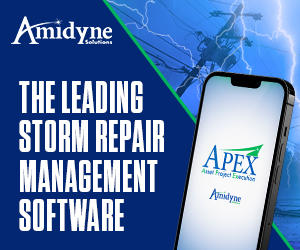A new report from the Clean Energy States Alliance (CESA), Energize Your Impact: How Foundations Can Accelerate Solar for the Benefit of Under-Resourced Communities, explores how philanthropic foundations have supported the deployment of solar and solar plus battery storage (solar+storage) in low- and moderate-income (LMI) communities in the United States. It provides a menu of strategies that foundations can use to bring clean energy benefits to LMI households and communities.
Although solar and solar+storage have the potential to provide significant financial, environmental, and resilience benefits, historically there have been daunting obstacles for under-resourced communities to access these technologies. The report focuses on strategies for foundations to help overcome those challenges and advance energy equity.
Energize Your Impact presents eight intervention models that foundations have used to scale up solar and solar+storage. The interventions can be divided into three groups: (1) those that directly reduce costs, such as grants and donations of solar panels; (2) those that facilitate project developers' access to funding and support market building, such as loans, loan guarantees, and equity investments; and (3) those that help community organizations prepare to implement solar and solar+storage, such as technical assistance funds and capacity-building programs. The models in the report can be replicated and adapted by a wide range of foundations and funders.
"The report does not claim there is a single optimal intervention model," explains lead author and CESA Project Director Vero Bourg-Meyer. "In fact, it will require a mix of these strategies to successfully deploy solar and solar+storage at scale in LMI communities."
Bourg-Meyer comments further about the report in a brief video available here.
For the report, the authors conducted literature reviews and interviews with foundations and investment recipients, such as lenders and project developers. The eight intervention models are highlighted with case studies on specific foundation initiatives involving the Bezos Earth Fund, Couillard Solar Foundation, the Honnold Foundation, the Kresge Foundation, The Solutions Project, and Surdna Foundation.
"Solar in LMI communities can achieve several foundation objectives," CESA Executive Director Warren Leon points out. "It can speed the transition to clean energy while simultaneously strengthening important community institutions and easing the financial burdens of LMI households."
Energize Your Impact: How Foundations Can Accelerate Solar for the Benefit of Under-Resourced Communities was produced with support from the U.S. Department of Energy Office of Energy Efficiency and Renewable Energy (EERE) under the Solar Energy Technologies Office award number DE-EE-0008758.
About the Clean Energy States Alliance
The Clean Energy States Alliance (www.cesa.org) is the leading US coalition of state energy agencies working together to advance the rapid expansion of clean energy technologies and bring the benefits of clean energy to all. Established in 2002, CESA is a national, member-supported nonprofit that works with its members to develop and implement effective clean energy policies and programs. CESA's members primarily state energy agencies representing 18 states and the District of Columbia include many of the nation's most innovative, successful, and influential implementers of clean energy policies.
CESA produced this report as part of the Scaling Up Solar for Under-Resourced Communities Project, which seeks to address a central challenge facing the future of solar energy in the US: How to ensure that solar technologies benefit all Americans regardless of income.










